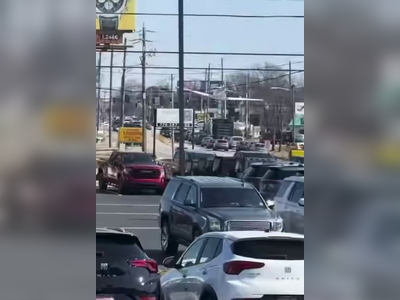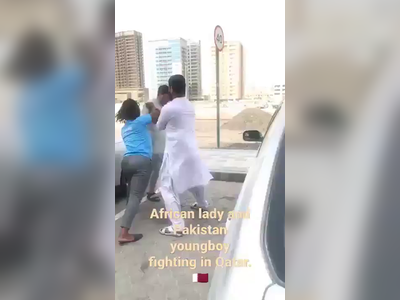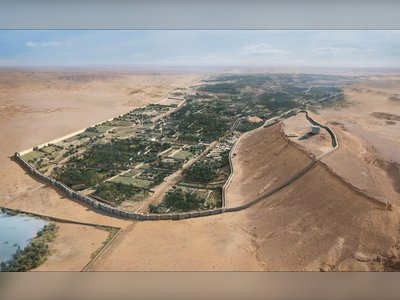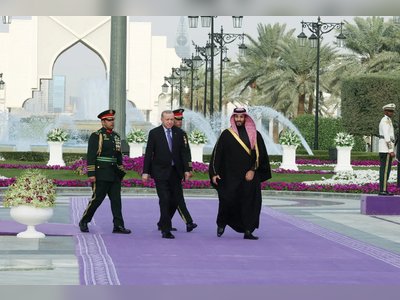Escalating Violence in Gaza as Ceasefire Negotiations Intensify
International efforts seek to quell conflict amid growing casualties and humanitarian crisis
CAIRO—Intensified Israeli airstrikes across the Gaza Strip have resulted in the deaths of at least 27 Palestinians on Wednesday, as reported by Palestinian medical officials.
The strikes come as international mediators accelerate negotiations for a potential ceasefire and a hostage exchange agreement between Israel and the militant group Hamas.
In the densely populated Sheikh Radwan neighborhood of Gaza City, a single airstrike resulted in the tragic loss of at least 10 lives within a multi-story residential building.
Another airstrike claimed the lives of five individuals in the nearby Zeitoun suburb.
Additional casualties were reported in central Gaza’s Deir Al-Balah, a city that currently shelters hundreds of thousands of displaced Palestinians, and in Jabalia, the largest of Gaza's historic refugee camps, where seven people were killed.
According to Israel’s military, strikes targeted Hamas militants allegedly operating within a school in Jabalia, with measures taken to minimize civilian harm.
However, further into Wednesday, an airstrike killed five Palestinians in a public garden in Gaza City—an attack that remains uncommented upon by the Israeli military.
With higher casualty tolls emerging as a daily occurrence, the Gaza Health Ministry has warned of severe operational disruptions at major hospitals due to critical fuel shortages.
They have received an emergency fuel delivery, sufficient only to delay a complete shutdown until Thursday unless additional resources arrive.
International diplomatic channels see the United States, Qatar, and Egypt ramping up their efforts to broker a ceasefire deal.
A source intimately involved in the discussions has suggested this represents the most serious attempt to secure terms favorable to both parties to date.
Outgoing U.S. President Joe Biden's administration is particularly intent on achieving progress before President-elect Donald Trump’s inauguration on January 20.
Steve Witkoff, Trump’s appointed Middle East envoy, expressed hopes of positive developments regarding Israeli hostages by the Inauguration Day, with proposals hinting at reciprocal hostage and prisoner exchanges.
The blockade and continuing conflict have devastated Gaza, causing catastrophic damage to infrastructure and displacing the majority of its 2.1 million residents multiple times.
These residents now face dire shortages of basic necessities, such as food and medicine.
Recent natural adversities, including heavy rains and flooding, compound the humanitarian crisis, with reports from the International Federation of Red Cross and Red Crescent Societies highlighting the adverse effects on already vulnerable communities.
This escalation stems from Hamas's attack on Israel in October 2023, where 1,200 Israelis were killed and over 250 taken hostage, provoking the current Israeli military campaign.
Both parties have continually accused the other of obstructing peace, with stringent conditions posed by Hamas and Israel undermining previous negotiation attempts over the past year.
As the situation remains critical, each side's demands reflect deep-rooted challenges underlying any progress toward peace.
Hamas has insisted that it would only release hostages upon Israel's complete military withdrawal from Gaza, whereas Israel maintains its stance of ending hostilities solely after neutralizing Hamas and liberating all hostages.
The strikes come as international mediators accelerate negotiations for a potential ceasefire and a hostage exchange agreement between Israel and the militant group Hamas.
In the densely populated Sheikh Radwan neighborhood of Gaza City, a single airstrike resulted in the tragic loss of at least 10 lives within a multi-story residential building.
Another airstrike claimed the lives of five individuals in the nearby Zeitoun suburb.
Additional casualties were reported in central Gaza’s Deir Al-Balah, a city that currently shelters hundreds of thousands of displaced Palestinians, and in Jabalia, the largest of Gaza's historic refugee camps, where seven people were killed.
According to Israel’s military, strikes targeted Hamas militants allegedly operating within a school in Jabalia, with measures taken to minimize civilian harm.
However, further into Wednesday, an airstrike killed five Palestinians in a public garden in Gaza City—an attack that remains uncommented upon by the Israeli military.
With higher casualty tolls emerging as a daily occurrence, the Gaza Health Ministry has warned of severe operational disruptions at major hospitals due to critical fuel shortages.
They have received an emergency fuel delivery, sufficient only to delay a complete shutdown until Thursday unless additional resources arrive.
International diplomatic channels see the United States, Qatar, and Egypt ramping up their efforts to broker a ceasefire deal.
A source intimately involved in the discussions has suggested this represents the most serious attempt to secure terms favorable to both parties to date.
Outgoing U.S. President Joe Biden's administration is particularly intent on achieving progress before President-elect Donald Trump’s inauguration on January 20.
Steve Witkoff, Trump’s appointed Middle East envoy, expressed hopes of positive developments regarding Israeli hostages by the Inauguration Day, with proposals hinting at reciprocal hostage and prisoner exchanges.
The blockade and continuing conflict have devastated Gaza, causing catastrophic damage to infrastructure and displacing the majority of its 2.1 million residents multiple times.
These residents now face dire shortages of basic necessities, such as food and medicine.
Recent natural adversities, including heavy rains and flooding, compound the humanitarian crisis, with reports from the International Federation of Red Cross and Red Crescent Societies highlighting the adverse effects on already vulnerable communities.
This escalation stems from Hamas's attack on Israel in October 2023, where 1,200 Israelis were killed and over 250 taken hostage, provoking the current Israeli military campaign.
Both parties have continually accused the other of obstructing peace, with stringent conditions posed by Hamas and Israel undermining previous negotiation attempts over the past year.
As the situation remains critical, each side's demands reflect deep-rooted challenges underlying any progress toward peace.
Hamas has insisted that it would only release hostages upon Israel's complete military withdrawal from Gaza, whereas Israel maintains its stance of ending hostilities solely after neutralizing Hamas and liberating all hostages.








